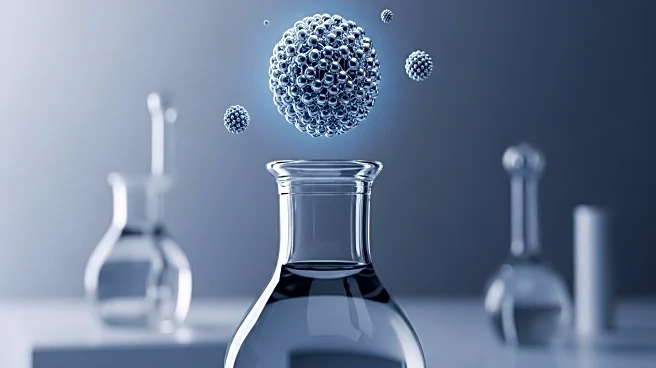What's Happening?
Researchers from the University of Bergen, QIMR Berghofer, and Flinders University have developed a method to enhance the antimicrobial properties of vinegar using cobalt-containing carbon quantum dot nanoparticles. This innovative approach targets several pathogenic bacteria, including drug-resistant strains like Staphylococcus aureus and Escherichia coli. The nanoparticles, when added to weak acetic acid, cause bacterial cells to swell and absorb the treatment, leading to their destruction. This method has shown promising results in mice, effectively removing bacterial infections without harming human cells. The study, published in ACS Nano, highlights the potential of this technique to address the growing issue of antimicrobial resistance, which is linked to millions of deaths annually.
Why It's Important?
The development of this enhanced vinegar solution represents a significant advancement in the fight against antimicrobial resistance, a major global health threat. By utilizing nanoparticles, researchers have found a way to increase the effectiveness of traditional antibacterial treatments, potentially reducing the reliance on antibiotics and slowing the spread of resistant bacteria. This approach could lead to safer, non-toxic treatments for infections, benefiting vulnerable populations such as the elderly and those with chronic conditions. The study underscores the importance of innovative solutions in combating superbugs, which pose a serious risk to public health worldwide.
What's Next?
Further research and clinical trials are necessary to determine the efficacy and safety of this nanoparticle-enhanced vinegar solution in humans. If successful, this treatment could be integrated into healthcare settings, providing a new tool for managing bacterial infections. Researchers may also explore the application of this technology to other antimicrobial treatments, potentially broadening its impact. The ongoing battle against antimicrobial resistance will likely drive continued investment and interest in similar innovative solutions.
Beyond the Headlines
The use of nanoparticles in medical treatments raises ethical and regulatory questions regarding safety and environmental impact. As this technology advances, it will be crucial to address these concerns to ensure responsible development and deployment. Additionally, the success of this approach may inspire further exploration into the use of nanotechnology in other areas of medicine, potentially revolutionizing treatment options for various diseases.









